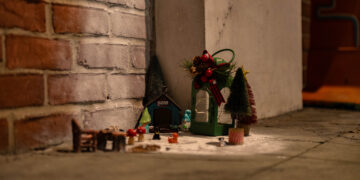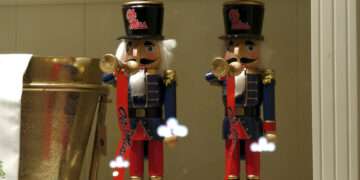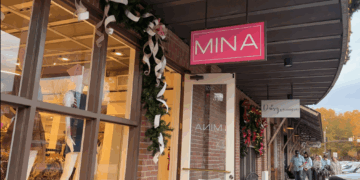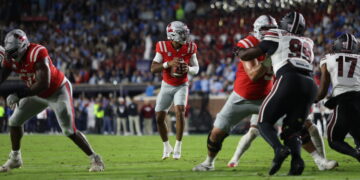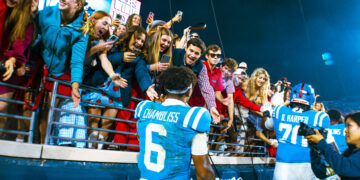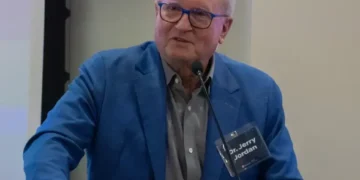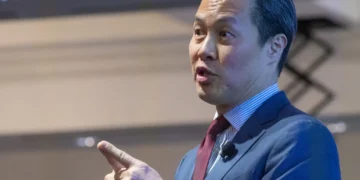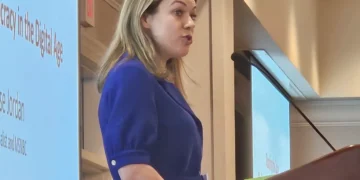
New Miss started as a gift: one hat given to an iconic figure in the University of Mississippi’s history. It later turned into a clothing brand, then became a student’s campaign platform and now, the two words represent a mission centered around love, compassion, equity and equality.
The story of New Miss begins with James Meredith in 1962 and continues today with the help of one of Meredith’s long-time friends and two UM students hoping to heal, grow and reform the University of Mississippi and the state as a whole.
Meredith, the first Black man to attend the university and a civil rights icon, was given the original New Miss hat by Pastor Robert West about three years ago. He’s worn it nearly every day since, according to Suzi Altman, a photojournalist and friend of Meredith for the past 20 years. Altman said West had the hat made for Meredith, telling him, “The day you stepped on the Ole Miss campus, it ceased to be Ole Miss. It became New Miss. October 1, 1962, it became New Miss.”
For years, the term ‘Ole Miss’ has caused controversy over its Mississippi plantation origins. In 1939, the university’s student-led newspaper, then known only as The Mississippian, reported that the student who named the yearbook “The Ole Miss” in 1896, was inspired “from the language of the Ante-bellum ‘Darkey,’ who knew the wife of his owner by no other title than ‘Ole Miss.’” The headline read, “Ole Miss Takes Its Name From Darky Dialect, Not Abbreviation of State.”
Altman met Meredith in 2002 when she took a photo of him in front of his auto repair shop in Jackson for The New York Times, just days before the 40th anniversary of the desegregation of the university. She is responsible for turning West’s gift idea into a trademarked brand whose proceeds mostly go to The James Meredith Interpretive Center, Meredith’s new museum scheduled to open late 2021 and Black Lives Matter-Mississippi.
The New Miss Brand sells baseball hats identical to Meredith’s original, other than one addition by Altman: “James H. Meredith 1962” embroidered on the back. The online store also offers flags, t-shirts and flat brim hats with the New Miss logo on them.
UM students DeArrius “Dee” Rhymes and Tyler Yarbrough have worked alongside Altman to elevate New Miss from a clothing brand to a tangible mission and concept on campus among students and faculty and across the state, beginning when Rhymes ran for Mr. Ole Miss on the platform of “Truth, Justice & The New Miss Way” with his friend Yarbrough as one of his campaign managers.
Rhymes and Yarbrough both wore New Miss baseball hats and t-shirts to accept their Who’s Who awards on Friday, opening their jackets on stage in the Pavilion to reveal their New Miss merch to the audience and Chancellor Glenn Boyce, who stood alongside them on stage.
Yarbrough, who was the last recipient to walk, remained on stage for about a minute with his jacket open and was met with applause, a holler from Rhymes and questions from others afterwards who wanted to know more.
To Yarbrough, New Miss is about more than removing the racist history from the school’s name. It’s about issues such as the absence of Black fraternity or sorority houses on campus, minority students dropping out due to lack of scholarships and financial aid, and the university failing to acknowledge its history of slavery on campus.
“I guess, by virtue, (New Miss) is kind of a political statement, but when I put it on, my first thought is about pride in myself,” Yarbrough said. “I think it represents progress and the direction we need to be going in.”
Rhymes, who has adopted the nickname ‘Mr. New Miss,’ says he believes that with the foundation that James Meredith laid and his own role in defining and advocating for New Miss, the brand has the opportunity to bridge the gap between equality and equity at the university and in the entire state.
“(New Miss) shouldn’t be a political statement. It should be normalized,” Rhymes said. “A Black person shouldn’t have to come to this school and feel like they don’t belong. Our Black student leaders come here and feel like they have to be political activists, every one of them.”
On the night of Saturday, April 10, Altman and her wife hosted Rhymes and Meredith at their home in Brandon so the two could meet one another for the first time, experience a traditional Passover Seder meal and trade stories about Mississippi and the university.
“I let them talk and brought them books from my collection, the Meredith library,” Altman said. “It was nice to see them talk about school, the student body, campus stuff that Dee’s involved in. James asked a lot of questions about that.”
Rhymes said Meredith offered him words of wisdom for his journey in trying to make a difference in a place like Mississippi, telling him, “Mississippi is the most powerful word in the English language” and “ain’t no shortcuts.” He said Meredith challenged him to dig deep, as he believes Rhymes had only begun to scratch the surface.

